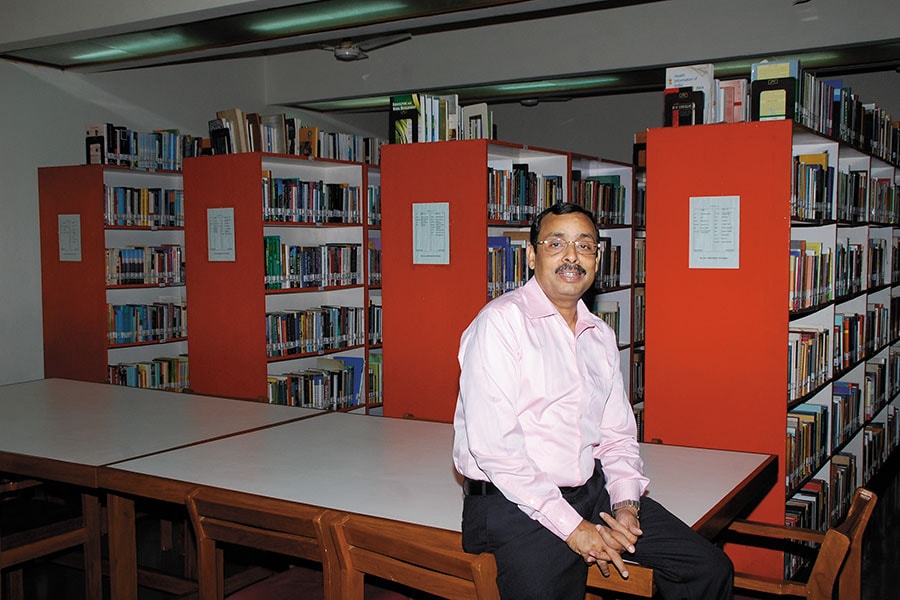
'Entrepreneurship is a State of Mind': Sunil Shukla
Sunil Shukla, director general of Entrepreneurship Development Institute of India, on what makes good business
 Sunil Shukla
Sunil Shukla
Founded in 1983, the Gujarat-based Entrepreneurship Development Institute of India (EDII) trains aspiring entrepreneurs and offers them a postgraduate diploma in business entrepreneurship. Sunil Shukla, director general, EDII, talks about how the institute is contributing to the growing startup ecosystem and building up an international footprint as well. Edited excerpts:
Q Can entrepreneurship be taught in the classroom?
This question was asked to me 40 years ago, when people were thinking whether entrepreneurs are born or can be created. India believed that entrepreneurs were created through teaching, training and development. The EDII was established in 1983 with this philosophy. We started with programmes for potential entrepreneurs, and then gradually ventured into those to train trainers and faculty members. Our first foray into education was through distance education courses in 1995, which continue even now—it is called open learning programme in entrepreneurship. In 1998, we launched our first full-time one-year programme and ran it successfully for 10 years without any affiliation. After that, we went to the AICTE, which then approved a two-year MBA equivalent course christened postgraduate diploma in management and business entrepreneurship.
But it is also true that, like any other profession, entrepreneurship is not everybody’s cup of tea.
There should be a basic minimum potential and receptivity. From there on, you can develop those traits to strengthen an entrepreneurial personality. Entrepreneurship is not just a career vocation, but a state of mind. And if you are entrepreneurial, you can excel in any profession. It cannot be taught like geography or literature. Many B-schools also have entrepreneurship as part of their curriculum but for them, it is ‘also’ while for us it is ‘only’.
Q Can you tell us about your incubation centre CrAdLE?
The EDII launched a technology business incubator named CrAdle (Centre for Advancing & Launching Enterprises) in December 2016 that was catalysed and supported by the National Science and Technology Entrepreneurship Development Board of the government of India. The genesis of our incubation centre was due to a lot of startups that are coming up. In three years, we have supported 40-plus entrepreneurs and out of those, 25 are in the commercialisation stage.
Q Does the EDII impart any practical knowledge to students?
We have two instruments to add value to our postgraduation programme. One is industry verticals and another is milestone-based learning. From among the emerging opportunities in various sectors like manufacturing, electronics, fintech, we ask the students to choose any three of these industry clusters and then invite experts from the respective sectors to give them a better understanding of their chosen field. Students do the market survey and during summer internships, most of our students go for data collection for their own ventures. Coming to milestone-based learning, some time ago we realised that many of our students, even after graduating, were not confident enough to launch their own business and wanted to pursue jobs for a while. After identifying the reason, we revived our curriculum to give them better exposure. The experts—most of them are from IITs and IIMs—are providing more in-depth knowledge about starting businesses and helping budding entrepreneurs in each and every step in setting up their business.
Q Since 1983, how has the EDII evolved and how does the future look like?
The EDII has helped set up 12 state-level exclusive entrepreneurship development centres and institutes. We’ve taken entrepreneurship to a large number of schools, colleges, science and technology institutions and management schools in several states by including entrepreneurship inputs in their curricula. The University Grants Commission had also assigned the EDII the task of developing curriculum on entrepreneurship and the Gujarat Textbook Board assigned to it the task of developing textbooks on entrepreneurship for classes 11 and 12. Internationally, the EDII has helped in developing entrepreneurship by sharing resources and organising training programmes, earning praise from the World Bank, Commonwealth Secretariat, United Nations Industrial Development Organization, International Labour Organization, British Council, Ford Foundation, European Union and Asean. The EDII has also set up the Entrepreneurship Development Centre at Cambodia, Laos, Myanmar and Vietnam and is in the process of launching them at Uzbekistan and five African countries. The United Nations Economic & Social Commission for Asia and Pacific in Bangkok has declared the EDII as a ‘Centre of Excellence’.
Q Can you tell us more about your ‘Skills to Succeed 2020’ Goal supported by Accenture?
In the last five years, we have trained close to 33,000 beneficiaries as part of the Micro Skillprenuership Development Programme under the ‘Skills to Succeed 2020’ Goal supported by Accenture. The programme was designed by the institute to cultivate viable entrepreneurship among marginalised communities. Under this programme, about 21,900 enterprises were set up by trained beneficiaries across states like Tamil Nadu, Kerala, Karnataka, Andhra Pradesh, Telangana, Maharashtra, Madhya Pradesh, Goa, Uttarakhand, Assam and Puducherry between 2015 and 2019. The outcome of micro and small entrepreneurship is far beyond economics. It helps in skill development, financial inclusion, controlling distress migration and women’s empowerment.
(This story appears in the 30 November, -0001 issue of Forbes India. To visit our Archives, click here.)





